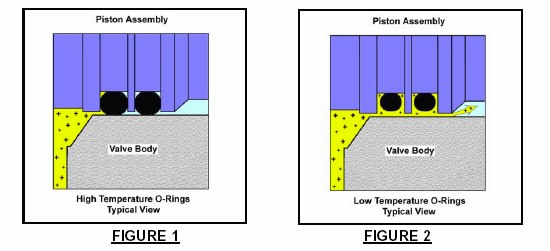

 |
 |
 Switlik Parachute Company of Trenton, New Jersey, has issued a Safety Alert covering a range of Switlik life rafts with manufacture dates going back to 1997 in some cases. The life rafts identified are fitted with a proprietary Switlik inflation valve that if exposed to an unusual and extreme combination of temperatures could result in a self-inflation or, potentially more serious, the loss of inflation gas.
Switlik Parachute Company of Trenton, New Jersey, has issued a Safety Alert covering a range of Switlik life rafts with manufacture dates going back to 1997 in some cases. The life rafts identified are fitted with a proprietary Switlik inflation valve that if exposed to an unusual and extreme combination of temperatures could result in a self-inflation or, potentially more serious, the loss of inflation gas.
The following Switlik life raft models are covered by the Safety Alert:
Click here to download a copy of this Switlik Safety Alert. (in Adobe Acrobat (PDF) format - opens a new browser window)
| Get Free Acrobat (PDF file) Reader |
The conditions which might result in a problem are exposure to temperatures above 95° F (35° C) followed by exposure to temperatures below 20° F (-6° C). The issue came to Switlik's attention after the unusually hot summer of 2003 in the Northeast U.S. followed by the coldest winter in 20 years. Richard Switlik explained that these temperatures are well withing the normal operating range of the valve, which is built to meet international standards, but it was the extraordinary combination of hot followed by cold temperatures that created just the right conditions for potential failure. Only this unusual combination of temperature extremes might possibly result in a failure. According to Switlik, most rafts will not experience this combination of temperatures and of those that do, virtually none will be affected.
The problem occurs when the valve's piston o-rings expand and take a compression set at the higher temperature (Figure 1 below). When these seals are then subjected to the extreme low temperatures there is insufficient elastic memory to overcome the relatively high shrinkage of the o-rings at low temperature (Figure #2 below). New o-ring seals with improved elastic performance solves the problem.

The piston is fitted with two pairs of o-ring seals. If the forward complete pair fail, the raft will self-inflate, which is self-evident. If the other complete pair fail, the gas in the cylinder can escape, which normally would not be obvious. The problem was discovered when a handful of life rafts self-inflated. Switlik noted that in all the life rafts they have serviced to date, only one suspected gas depletion has been identified.
Switlik is providing a free Piston and O-ring Replacement Kit and is covering the cost of installation by a Switlik Authorized Service Station at the next annual service for any life raft affected by the Service Alert. Owners of the listed life rafts that may have experienced these temperature extremes and whose life raft was serviced prior to June 15, 2004, are urged to have their raft serviced immediately (Click here for a list of Switlik Authorized Service Stations (opens a new browser window)). Owners of life rafts which have not been exposed to these temperature extremes will automatically have this kit installed at their next service by a factory authorized service station. As Switlik noted, their life rafts "must be serviced annually by a factory authorized service station." While many recreational life raft owners do not follow the factory service recommendations, not being required to do so by regulation, or turn to unauthorized service stations, this would be a good excuse to get that overdue service done, and done right.
Switlik reported that they have contacted all the owners for which they have contact information and have also been working with their dealers to get contact information for those not in their database. Because there is no regulatory requirement for owners to provide this data to the manufacturer, or to maintain its currency, it can make contacting them in such a situation problematic. Just another good reason to ensure you send in that warranty card for all the safety and survival equipment you purchase, any of which could be subject to a similar alert you would best be made aware of in a timely manner.
|
| SELECT AND USE OUTDOORS AND SURVIVAL EQUIPMENT, SUPPLIES AND TECHNIQUES AT YOUR OWN RISK. Please review the full WARNING & DISCLAIMER about information on this site. |
Publisher and Editor: Doug Ritter
Email: Doug Ritter
URL:
http://www.equipped.org/switlik_safety_alert_04-1.htm
First Published: October 19, 2004
Revision: 01 October 25, 2004
![]()
Email to: [email protected]
|